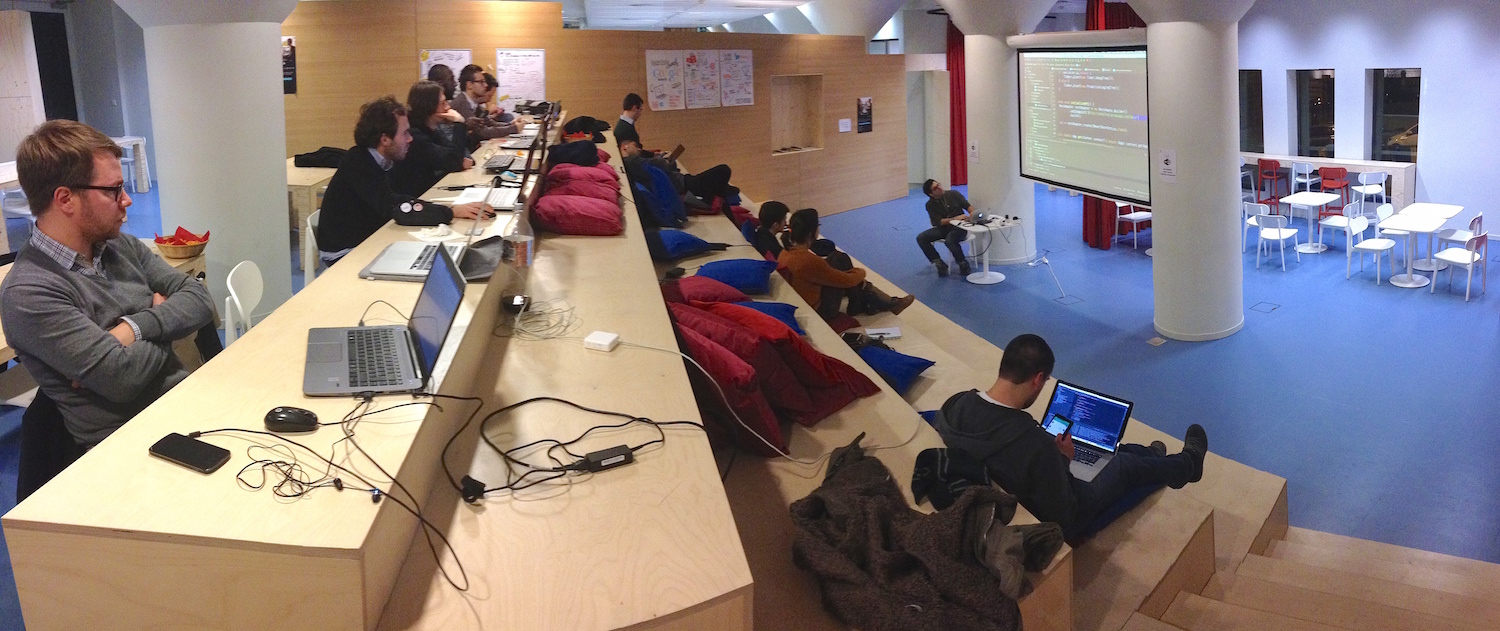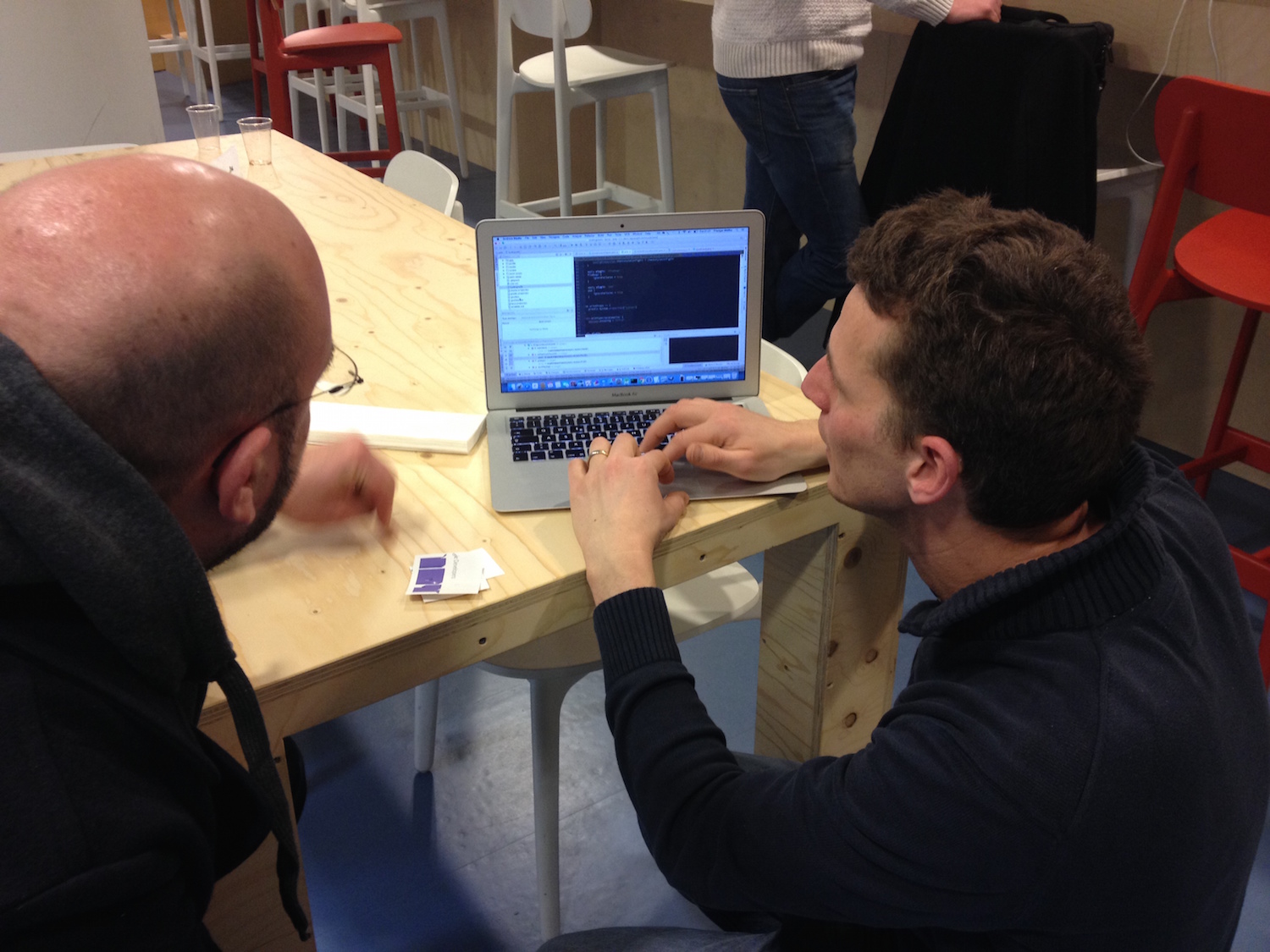Android Google Study Jams Brussels
Written on February 25 2015.
This blog post was written a long time ago and may not reflect my current opinion or might be technically out of date. Read with a grain of salt.

The Google Developer Study Jams Android Fundamentals is a worldwide study group organised by Google and Udacity. The principle is quite simple: people follows an online course on Udacity to become Android developers. Events are locally organized weekly so participants can share their problems, ideas and solutions.
The official website describes it perfectly:
Study Jams are an opportunity for students to receive free, in-person guidance and tutoring on the Udacity course in a fun classroom environment. Study Jam sessions are designed around the Udacity course structure, with a weekly session following each lesson (6 lessons), plus two additional weeks for completing and sharing course final projects. Students are expected to come to the Study Jam sessions having completed that week’s Udacity lesson online, so that the Study Jam time may be used to review key concepts, address questions, and work on individual projects. The live community atmosphere and tutoring is designed to help students achieve deeper learning around the concepts taught in the course.
The Google Developer Group of Brussels is organising the local event in Belgium in the beautiful working space Co.Station, next to the central station.
Friedger Müffke and I are the two tutors for the Brussels local group. We try to expand the content of the online course with some of our experiences. We also try to give the student a feeling of the Android ecosystem.

The Android fondamental course does not use any external libraries. Even for HTTP calls. Instead they ask the students to copy/paste a huge gist containing the code doing the call. I thought that it would have been nice to show the students how to include an external library.
We started to follow that path and we talked quite a lot about libraries that I find useful. Here are some of them:
- OkHTTP, HTTP calls should be easy.
- GSON, JSON manipulation.
- Retrofit, Ideal if you want to interact with a REST+JSON webservice. Beware that it can feel a little bit magic, it's hard to know what's going on. It relies on OkHTTP and GSON to do its job.
- EventBus, an EventBus for your application. It lets you send event throughout your application. *Otto, basically the same as EventBus. Try both and keep the one you prefer.
- Timber, small librarie that makes it easier to deal with logs.
You can find all those library in the jcenter maven repository.
Many of those libraries are edited by Square. Check their open source listing for more goodness.
Another small tool that we covered (but that I haven't tested in real life yet) is Retrolambda. You integrate it into your build chain and it lets you write lambda expressions with java 7. Nobody knows when (or even if) Java 8 will be available on android, so this tool can come handy if you really want to use those lambdas.
We also mentioned Genymotion, a fast android emulator based on VirtualBox.
Someone has a question about Context last week. This article is quite good to grasp the differences between the different available contexts.
Last but not least, we talked about Android Weekly, a very nice newsletter that collects all the news from the Android ecosytem. It is a great way to discover new libraries and tools.
Thanks a lot to Anne Collet from Le Wagon Brussels to host us in Co.Station.
If you're interested and want to participate, join the Google Developer Group Brussels on Meetup!